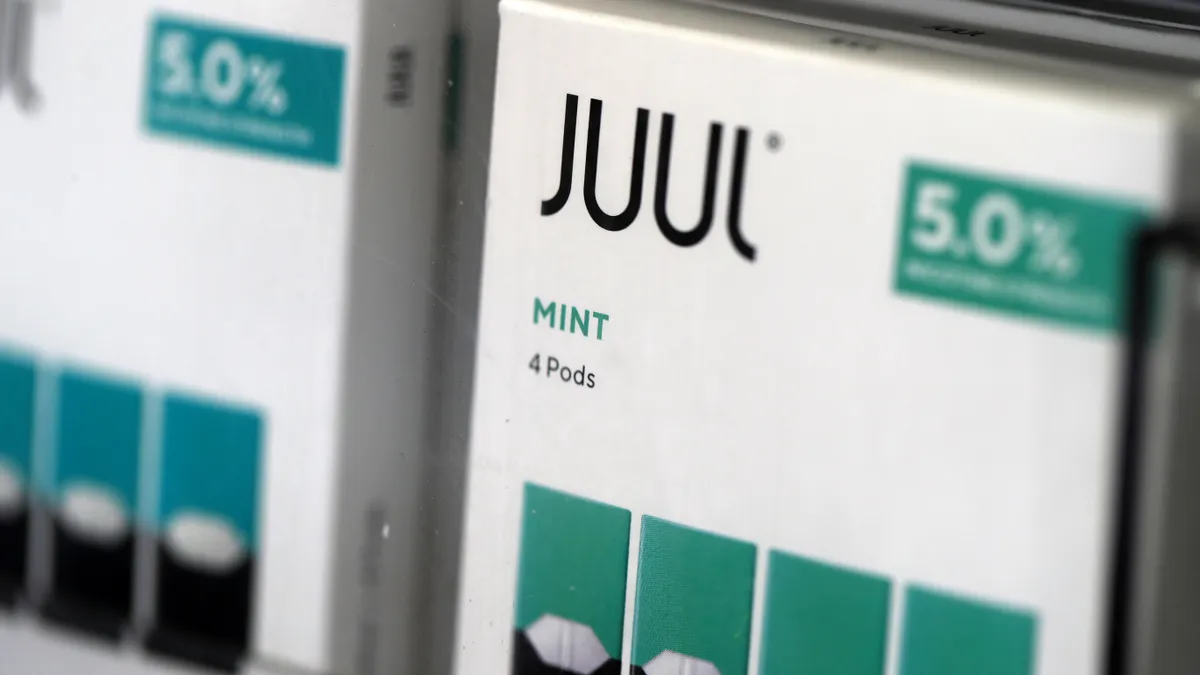Dive Brief:
- As it endures a tumultuous year filled with lawsuits and revenue declines, Juul Labs plans to lay off about 400 employees and cut its operating budget by 30% to 40% in an attempt to “continue moving forward,” the company said in an emailed statement.
- Juul has received an undisclosed “investment of capital” from sources that had previously invested in the company, which has enabled its “path forward” during this period, the e-cigarette maker said in the statement.
- The reorganization and financing come as Juul deals with turmoil, highlighted most recently by the $438 million settlement it agreed to pay amid a multistate investigation into its marketing tactics.
Dive Insight:
Juul’s latest staff cuts — which a company spokesperson called “difficult but necessary” in the email — mark the fourth time in three years it has eliminated a large portion of its workforce. It cut around 650 jobs in November 2019 as it stopped selling its popular mint-flavored e-cigarette refill pods; around 900 employees in April 2020 as it grappled with a falling e-cigarette market share; and more than half of its remaining workforce in September 2020 as part of a broader restructuring.
Prior to its latest staff cuts, Juul had about 1,500 employees, according to its LinkedIn page.
In addition to the layoffs, the funding Juul has received from its investors will allow it to maintain normal operations, as well as continue with its administrative appeal of the Food & Drug Administration’s (FDA) marketing denial order (MDO) of its products from June, the company spokesperson said in the email.
Juul did not specify any details regarding how much the investment in capital is worth.
Besides its recent $438 million settlement — its largest to date — Juul faces thousands of other lawsuits over its marketing practices, according to The Wall Street Journal, including ones in North Carolina, Louisiana, Arizona and Washington over the past year.
Convenience stores have been hit hard by Juul’s recent turmoil. Many retailers associated with NACS have invested millions in staffing, facilities, logistics, inventory and contracts to the JUUL products that were banned in the FDA’s June 23 MDO, according to an amicus brief NACS filed in the Juul lawsuit.











